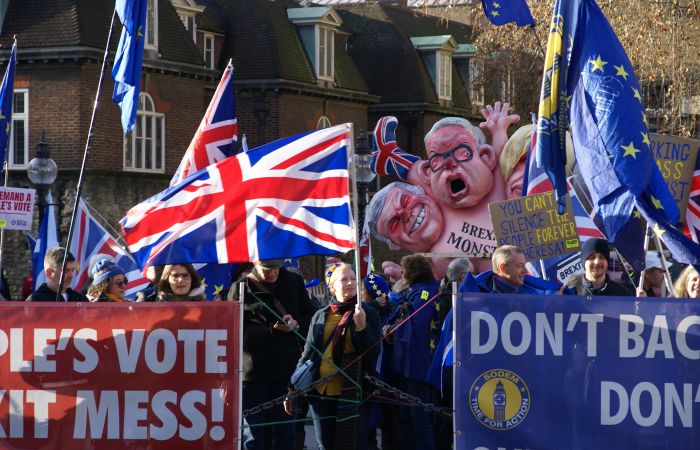One of the most important–and least discussed–aspects of the vote for Brexit has been the failure of most pollsters and newspapers to predict and understand the reasons for Brexit. Even the betting market, generally much more reliable, got it wrong. This phenomenon is not unique to Brexit. Most pundits and pollsters missed the importance of Trump. Why?
What we have observed in Britain and what we are observing in the U.S. with Trump is a growing mistrust of voters toward experts. In the Brexit debate it was hard to find any economist justifying a departure from the European Union. In fact, many were willing to make forecasts so pessimistic as to be accused of scaremongering. Not only did these forecasts fail to rally the vote for Remain, they probably contributed to the victory of Leave.
In the Financial Times Chris Giles lamented this phenomenon as an example of voters’ irrationality. I fear this has nothing to do with irrationality, but has everything to do with mistrust; a mistrust that, while exaggerated, has a very rational basis: the disconnect between the intellectual elite and the population at large–the very disconnect that caused pollsters, betters, and journalists to miss the mounting Brexit wave.
This disconnect inverts the very positive trend that characterized the 20th century: a closer connection between intellectuals and the rest of the population. This trend started in the United States at the end of the 19th century. The increasing diffusion of literacy and of secondary education created the scope for a media market and an academic sector that were not just catering to a restricted elite, but were speaking to and for a broader set of the population.
In those years, Louis Brandeis spoke of the need not just for corporate lawyers, but also for people’s lawyers, and he certainly was one. In those years the muckraking magazines were exposing the fraud and corruption of the political and economic elites. In those years scientists, economists, and intellectuals in universities were more focused on enhancing the progress of humankind, than on defending the interests of powerful donors.
At the end of the 20th century and in the 21st this trend was not only interrupted, but inverted. Plummeting advertising revenues made newspapers much more dependent on economic powers. Large donations (or the prospects for such donations) made universities much more sensitive to the needs of a restricted elite.
Today wealth concentration allows a few rich individuals to singlehandedly fund think tanks, which have increasingly become loudspeakers of vested interests, rather than centers of elaboration of public policy. Campaign financing and future lobbying jobs are increasingly transforming elected officers from representatives of the people to “butlers of industrial interests,” to use a famous muckraking expression.
The effects are there for all to see. Doctors are perceived to promote the medicines of the companies that sponsor their lunches, not necessarily the ones that are needed; scientists to minimize the effect of pollutants produced by companies that fund their labs; economists to defend the interests of banks that pay them hefty consulting fees. Even journalists, when they are not perceived to promote the interest of their advertisers and owners, are accused of turning a blind eye to their problems. How long, for example, did the papers, first in West Virginia and later at the national level, ignore the massive pollution of PFOA produced by DuPont?
Even when there is no financial incentive distorting experts’ views, there is a cultural affinity between the experts and the economic and political elites. A combination of legacy admissions and selection based on the quality of the high school (and thus the census) the students come from has created an increasingly homogenous academic population at top colleges, detached from the vast majority of the country. Scientists, journalists, and intellectuals all belong to the same world and so inevitably look at the world from the same perspective.
All these factors together lead to a mistrust toward experts. They lead to a presidential candidate who is proud not to rely on them and receives support for this reason. They lead to political decisions, like Brexit, that might have negative consequences for the very people who voted for it.
My ancestors in Sicily did not go to doctors because they mistrusted all experts: they thought they were all just trying to cheat them. They suffered the health consequences of this decision. Today the consequences would be much worse. In a world that is increasingly dependent on technical expertise to function, we cannot afford to mistrust most experts.
Fault does not lie with the people mistrusting us. We need to rebuild that trust. It is not sufficient that most doctors, intellectuals, and journalists do a very fine job. We should have transparency rules in place to ensure that they all free from conflict of interest. We should have admission rules that favor not just ethnic diversity, but also economic and social diversity. We should have campaign financing rules that free our representatives from the yoke of vested interests.
In sum, we need to create the conditions to undermine this mistrust of experts. This is the most important lesson from Brexit.






